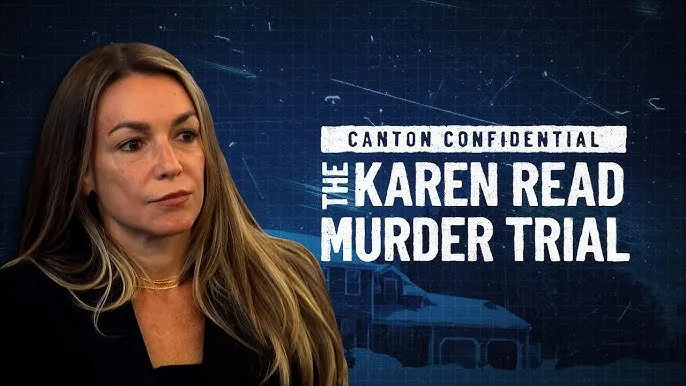The Ongoing Saga of the Karen Read Retrial: A Closer Look
The Karen Read murder retrial has become a focal point in discussions surrounding the American legal system. Since its onset, the trial has captured the attention of not only those involved in the case but also the general public who are interested in the intricacies of justice, innocence, and the consequences of mistakes made in haste.
A Brief Background on the Case
Karen Read, a former Boston College student, has been embroiled in a murder case that revolves around the tragic death of her boyfriend, John McKeon. In the initial trial, Read was convicted of causing McKeon’s death, but subsequent appeals led to a retrial that has rekindled debates over evidence, motives, and the very fabric of legal accountability.
Prosecution Rests in Retrial
The news that the prosecution has rested its case is a pivotal moment in the trial and signals a new phase where defense arguments will take center stage. With the prosecution venturing to solidify their claims, they had the arduous task of ensuring their evidence could withstand scrutiny. They presented several testimonies and pieces of physical evidence intended to illustrate Read’s culpability. The prosecution’s strategy seemed steadfast; they aimed to weave a narrative around reckless behavior leading to a fatal outcome. However, as many observers noted, the credibility of witnesses and the robustness of the physical evidence have been hotly contested.
The Defense’s Turn
As the prosecution handed over control of the courtroom, the defense team wasted no time in preparing their counterarguments. The defense has been adamant from the outset regarding Read’s innocence, claiming that crucial evidence was overlooked or misinterpreted in both the initial investigation and in the trial. They argue that the truth of what happened that night is far more complex than the prosecution suggested.
The strategy for the defense will involve calling several witnesses who could provide alternative perspectives or corroborate Read’s version of events. Each witness is a carefully chosen piece in the broader puzzle of raising reasonable doubt. The anticipation builds as legal experts and avid followers of the case speculate about who these witnesses might be and what information they may provide.
Implications of the Trial
The spotlight on the Karen Read retrial is not just about a single murder case—it touches on wider themes of justice and the legal process. In many ways, this trial has become a microcosm of flaws and strengths within the American judicial system.
Media Influence and Public Perception
One of the most fascinating aspects of this case is how media narratives shape public perception and, subsequently, the trial itself. Courtroom videos and live updates create an environment where the public forms strong opinions even before all the facts are presented. This can lead to potential bias, even among the jury, affecting their judgement. As members of the public watch portions of the trial unfold on social media and news outlets, they are inevitably swayed by the portrayal of evidence and arguments made in real-time.
Lessons on Legal Accountability
The Karen Read case serves as a reminder about the high stakes involved in the criminal justice system. Accusations of murder come with grave implications, potentially resulting in life-altering sentences based on the outcome of trials. The concept of “innocent until proven guilty” is supposed to be the foundation of justice, yet cases like Read’s extremify the complexities involved when that principle seems to falter.
It raises the question: How accountable should prosecutors and investigators be for their actions? With eyewitness testimony often unreliable and forensic evidence not always conclusive, the legal system occasionally struggles to serve justice appropriately. In Read’s case, the struggles within the investigative processes might call for a reevaluation of how such investigations are conducted going forward.
The Relevance of Reasonable Doubt
As the trial progresses towards its conclusion, the concept of reasonable doubt becomes ever more critical. The jurors are bound to weigh the evidence presented in court against their assessment of whether it is enough to overcome reasonable doubt. For the defense, this notion is a beacon of hope. Their objective will be to ensure that the jury understands the ambiguities surrounding the evidence and testimonies that point to Read’s guilt, advocating for doubt whenever possible.
Community Response and Advocacy
Community responses to the retrial have varied widely. Supporters of Read argue strongly for her release, advocating for justice reform and expressing concerns about the integrity of the criminal justice system. Social justice advocates have used this case as a platform to discuss broader implications regarding mental health, domestic violence, and criminal accountability.
The engagement from the public speaks to a greater need for introspection within the system. Are we allowing individual biases to dictate the course of judicial proceedings? Is there an unwitting prejudice that colors how we perceive cases involving women? The discourse surrounding this trial may provide a platform for invoking much-needed change within the legal framework in which such cases are tried.
A Conclusion Despite Uncertainty
As the courtroom drama unfolds, those involved—including Read, her family, and the victim’s family—await outcomes that could reshape their lives. The legal world watches closely as attorneys brace for a potential closing argument from the defense and subsequently for deliberations from the jury.
What unfolds in the next phase of the Karen Read retrial will not only impact those directly involved but will echo through discussions about judicial reform, integrity in investigations, and the pursuit of justice for victims and the accused alike. In a system designed to uphold the truth, the Karen Read retrial serves as a stark reminder that the pursuit of justice is often a complicated journey replete with uncertainty, emotion, and societal implications that transcend any singular case.
Final Thoughts
As we await updates from the court, the mounting anticipation reflects not just curiosity about the outcome of this specific case, but also about the deeper questions surrounding justice in America. The Karen Read trial may close eventually, but the conversations it sparks will undoubtedly continue long after the final gavel falls. Questions about responsibility, bias, and reform will remain vital, demanding our attention and introspection beyond the courtroom walls.







